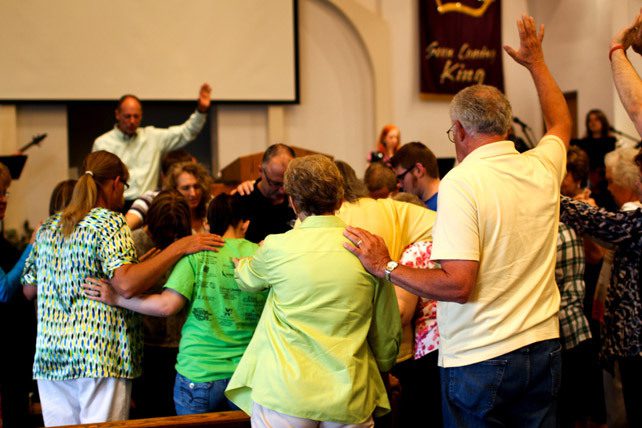Chapter 7:
“Could it be that God designed us to be in intergenerational relationships because of the benefits this affords us all? If so, how sad it is that small churches so often view their inability to provide a plethora of age-focused ministries as a liability. How sad to view this as a weakness when, in reality, it is a strength.” (59)
“[S]ooner or later you are going to get that phone call, with someone asking, “What kind of ministries does your church offer for children and youth? For young married couples? For seniors?” Please don’t make this a time for an apology, or a time to sound defensive. Instead, exploit how your church values being an intergenerational family!” (61)
Chapter 8:
Chapter 9:
“If a strong relational foundation is established, then small-church people are far more likely to respond to their pastor’s vision, counsel, suggestions for change . . . . It is unscripted relational moments that often provide the best opportunities for discipleship and spiritual guidance.” (70)
“There may be regular coffee times in the local café—perhaps early morning, mid-morning, or mid-afternoon, all with different groups. There might be a time every morning when folks tend to pick up their mail at the post office. I even know of pastors who often do some of their sermon preparation in local cafés—a ministry of presence, not knowing who might show up and sit with them for a spell.” (72)
“The Bible strongly encourages us to be relational. Being shepherds is our calling (1 Pet. 5:1–4). How can we live this out without being relational? Shepherds don’t stand at a distance and tell sheep what to do. Shepherds are not drive-in preachers—shepherds are with their flocks.” (73)
Chapter 10:
“For many small churches, an informal greet-your-neighbor time is a highlight in the service. I’ve been in churches where five minutes or more was given to this. For small-church people, this is more than a perfunctory greeting time; it is a time to catch up on what’s happening in each other’s lives.” (76)
“In my visits to hundreds of small churches across the country, I have observed some really meaningful sharing and praying times. This part of the service is an opportunity for the family to share news with each other, express gratitude, share concerns, celebrate joys, etc. This is prime time to “encourage the fainthearted, help the weak . . . rejoice always, pray without ceasing, give thanks” (1 Thess. 5:14–18).” (77)
“God is far more exalted when the entire congregation is engaged in worship than when members are largely spectators of worship. In no way am I saying that we shouldn’t give God our best worship, but for some of us, our best is a ‘joyful noise.’” (80)
Chapter 11:
“If you craft your sermon well, you probably won’t be able to preach it anywhere else. It should be individualized for your context. To do this, you must know your context well. Contextualization is another reason why it is so important that we preachers develop relationships with our people.” (87)
“Most small-church people view the Sunday morning service as a family gathering. This means that formal, stiff, polished preaching will seem like a foreigner in the room. Listeners will appreciate a more folksy, down-home style of delivery.” (91)
“I want to pass along a piece of advice that was given to me years ago that has proven time and again to be especially helpful: do the bulk of your sermon preparation well ahead of time, perhaps six weeks or so. This advice is particularly helpful for solo pastors, because you never know what might suddenly and unexpectedly require your time.” (94)

